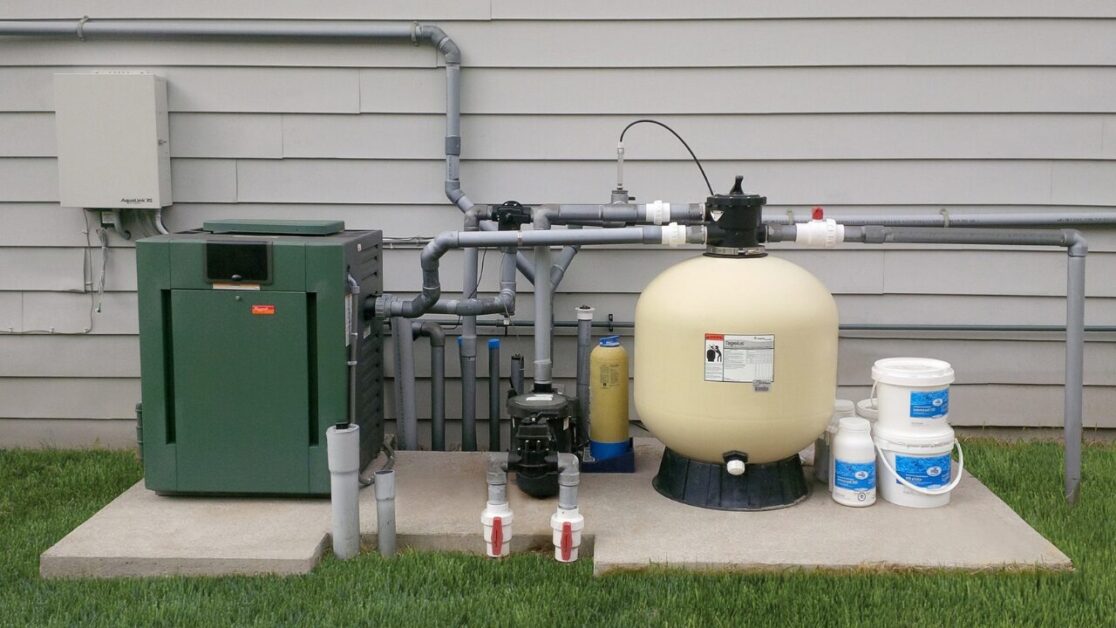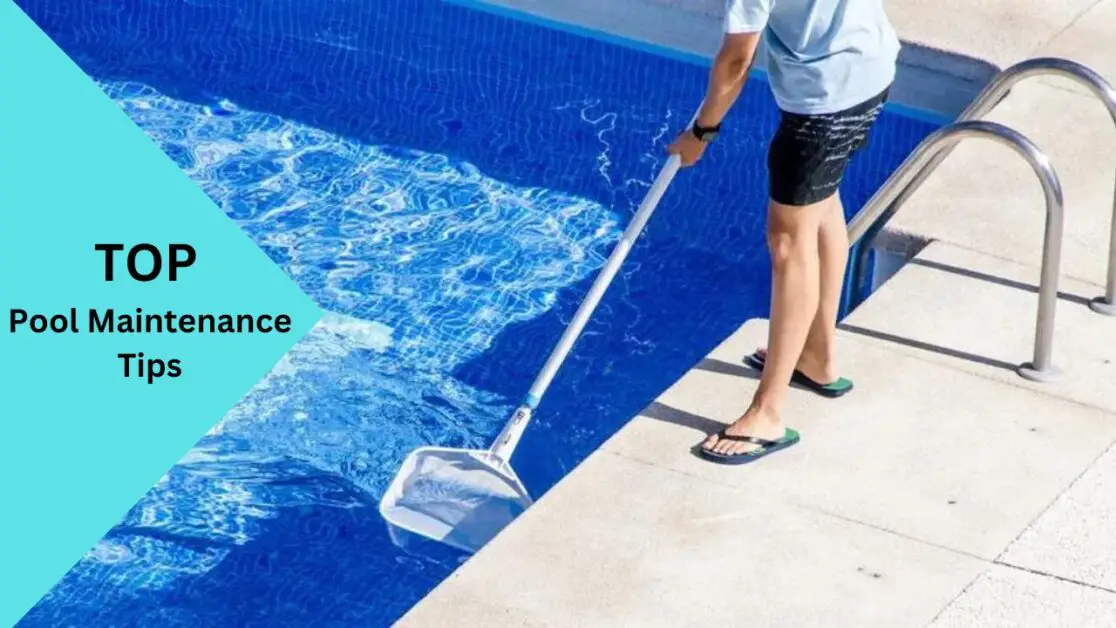Maintaining your swimming pool is essential for ensuring its longevity, cleanliness, and safety. Neglecting pool maintenance can lead to a host of problems, including algae growth, pH imbalance, and equipment malfunctions. In this guide, we’ll explore ten crucial tips to help you keep your swimming pool in top condition throughout the year.
- Brief Overview of the Importance of Pool Maintenance
- Introduction to the 10 Tips to Be Discussed
- Tip 1: Test and Balance Your Pool Water Regularly
- Tip 2: Clean Skimmer Baskets and Filters
- Tip 3: Skim the Surface and Vacuum the Pool
- Tip 4: Brush and Scrub the Pool Walls and Tiles
- Tip 5: Maintain Proper Water Circulation and Filtration
- Tip 6: Monitor and Maintain Water Chemistry
- Tip 7: Keep Pool Equipment Clean and Well-Maintained
- Tip 8: Cover Your Pool When Not in Use
- Tip 9: Monitor and Maintain Water Level
- Tip 10: Schedule Regular Professional Inspections and Maintenance
- Conclusion
Brief Overview of the Importance of Pool Maintenance
Proper pool maintenance is vital for several reasons. Firstly, it ensures the health and safety of swimmers by preventing the growth of harmful bacteria and algae. Additionally, regular maintenance helps to prolong the lifespan of your pool equipment, saving you money on repairs and replacements in the long run.
Introduction to the 10 Tips to Be Discussed
We’ll cover everything from testing and balancing your pool water to cleaning skimmer baskets, vacuuming the pool floor, and maintaining proper water circulation. By following these tips, you’ll be able to enjoy a sparkling clean pool that’s ready for swimming whenever you are.
Tip 1: Test and Balance Your Pool Water Regularly
Importance of Water Testing
Regularly testing your pool water is essential for maintaining proper chemical balance and water clarity. Testing allows you to monitor pH levels, chlorine concentration, alkalinity, and calcium hardness, ensuring that your pool remains safe and comfortable for swimmers.
Recommended Frequency of Testing
Experts recommend testing your pool water at least once a week, especially during the peak swimming season. However, you may need to test more frequently after heavy rainfall or periods of heavy use.
Adjusting pH, Chlorine Levels, Alkalinity, and Calcium Hardness
Once you’ve tested your pool water, you may need to make adjustments to ensure that it’s properly balanced. Use pH increaser or decreaser to adjust pH levels, shock your pool regularly to maintain proper chlorine levels, and use alkalinity and calcium hardness increasers or decreasers as needed to keep these levels in check.To learn more about Chorine leverls check out our latest article about Understanding Low Free Chlorine Levels in Pool Water: Causes, Effects, and Solutions
Tip 2: Clean Skimmer Baskets and Filters
Role of Skimmer Baskets and Filters
Skimmer baskets and filters play a crucial role in keeping your pool water clean by trapping debris such as leaves, insects, and other…
Role of Skimmer Baskets and Filters
Skimmer baskets and filters play a crucial role in keeping your pool water clean by trapping debris such as leaves, insects, and other contaminants before they have a chance to settle at the bottom of the pool. By regularly cleaning these components, you can prevent clogs and ensure that your pool’s filtration system operates efficiently.
Importance of Regular Cleaning
Failing to clean skimmer baskets and filters regularly can lead to reduced water circulation and filtration efficiency. This can result in cloudy water, algae growth, and strain on your pool pump and other equipment. By establishing a routine for cleaning these components, you can maintain optimal water quality and prolong the life of your filtration system.
Backwashing Filters as Needed
In addition to cleaning skimmer baskets, it’s essential to backwash your pool’s filters regularly, especially if you notice a decrease in water flow or pressure. Backwashing helps to remove trapped debris and contaminants from the filter media, allowing it to function effectively. Follow the manufacturer’s recommendations for your specific filter type to determine how often backwashing is necessary.
Tip 3: Skim the Surface and Vacuum the Pool
Daily Skimming to Remove Debris
Skimming the surface of your pool on a daily basis is an effective way to remove leaves, insects, and other debris before they sink to the bottom. Use a skimmer net or handheld skimmer to skim the water’s surface, paying particular attention to areas where debris tends to accumulate, such as near trees or bushes.
Weekly Vacuuming to Clean Pool Floor and Walls
In addition to skimming, it’s essential to vacuum your pool’s floor and walls on a weekly basis to remove dirt, algae, and other contaminants. Use a pool vacuum equipped with brushes or scrubbers to loosen debris and ensure thorough cleaning. Pay special attention to corners, steps, and other hard-to-reach areas where debris may accumulate.
Tip 4: Brush and Scrub the Pool Walls and Tiles
Preventing Algae Growth
Regularly brushing and scrubbing your pool’s walls and tiles is essential for preventing algae growth and maintaining water clarity. Algae can quickly spread in areas where…
Preventing Algae Growth
Regularly brushing and scrubbing your pool’s walls and tiles is essential for preventing algae growth and maintaining water clarity. Algae can quickly spread in areas where there is poor circulation or inadequate sanitation, leading to unsightly green or black patches on your pool surfaces. By regularly brushing and scrubbing, you can dislodge algae spores and prevent them from taking hold.
Techniques for Effective Brushing and Scrubbing
When brushing your pool walls and tiles, use a brush specifically designed for the surface material to avoid damage. Start at the waterline and work your way down to the pool floor, using overlapping strokes to ensure thorough coverage. Pay extra attention to areas with visible algae growth or stubborn stains, applying additional pressure if necessary to remove them.
Tip 5: Maintain Proper Water Circulation and Filtration
Importance of Water Circulation
Proper water circulation is essential for distributing chemicals evenly throughout your pool, preventing stagnant areas where algae and bacteria can thrive. It also helps to mix heated and cooler water, ensuring consistent temperature levels and comfortable swimming conditions.
Running Pool Pump and Filter System Efficiently
To maintain optimal water circulation, ensure that your pool pump and filter system are running efficiently. Clean or replace the filter media as recommended by the manufacturer, and regularly inspect the pump for signs of wear or damage. Additionally, consider upgrading to a variable-speed pump, which can adjust its speed to match your pool’s specific circulation needs.
Tip 6: Monitor and Maintain Water Chemistry
Testing Water Chemistry Regularly
Regularly testing your pool water chemistry is crucial for ensuring that it remains balanced and safe for swimming. Use a reliable test kit to measure pH, chlorine levels, alkalinity, and calcium hardness, and adjust these parameters as needed to keep them within the recommended ranges.
Adjusting Chemical Levels as Needed
Based on the results of your water tests, adjust chemical levels as needed to maintain proper balance. Add pH increaser or decreaser to adjust pH levels, shock your pool regularly to boost chlorine levels, and use alkalinity and calcium hardness increasers or decreasers as necessary to keep these parameters in check.
Tip 7: Keep Pool Equipment Clean and Well-Maintained

Importance of Equipment Maintenance
Regular maintenance of your pool equipment is essential for ensuring…
Importance of Equipment Maintenance
Regular maintenance of your pool equipment is essential for ensuring its longevity and efficient operation. Dirty or malfunctioning equipment can lead to poor water circulation, inadequate filtration, and increased energy consumption, ultimately impacting the overall health and cleanliness of your pool.
Inspecting and Lubricating Pool Equipment
Regularly inspect all pool equipment, including pumps, filters, heaters, and valves, for signs of wear, damage, or leaks. Clean or replace filters as needed, and lubricate moving parts to prevent friction and ensure smooth operation. Address any issues promptly to prevent them from escalating into more significant problems.
Tip 8: Cover Your Pool When Not in Use
Benefits of Using a Pool Cover
Using a pool cover when your pool is not in use offers several benefits. Firstly, it helps to reduce evaporation, minimizing water loss and the need for frequent refilling. Secondly, a pool cover can help to retain heat, reducing energy costs associated with heating your pool. Additionally, a cover can prevent leaves, debris, and other contaminants from entering the water, reducing the workload on your filtration system.
Choosing the Right Pool Cover
When selecting a pool cover, consider factors such as material, size, and design. Opt for a durable, UV-resistant cover that fits your pool snugly to maximize its effectiveness. You may choose from options such as solar covers, which harness the sun’s energy to heat the water, or safety covers, which provide added security by preventing accidental entry into the pool.
Tip 9: Monitor and Maintain Water Level
Importance of Maintaining Proper Water Level
Maintaining the proper water level in your pool is essential for ensuring optimal filtration and circulation. A water level that is too low can strain the pump and filtration system, leading to decreased efficiency and potential damage. Conversely, a water level that is too high can result in overflow and water wastage.
Adding Water as Needed
Monitor your pool’s water level regularly and add water as needed to maintain it at the recommended level. Use a garden hose or automatic filling system to gradually add water until it reaches the desired height. Avoid overfilling the pool, as this can lead to overflow and water loss.
Tip 10: Schedule Regular Professional Inspections and Maintenance
Importance of Professional Inspections
While regular DIY maintenance is essential, scheduling professional inspections and maintenance is equally important. A qualified pool technician can.
Importance of Professional Inspections
While regular DIY maintenance is essential, scheduling professional inspections and maintenance is equally important. A qualified pool technician can provide a thorough assessment of your pool’s condition, identify any potential issues, and perform maintenance tasks that may be beyond your expertise. Professional inspections can help to catch problems early, preventing costly repairs and ensuring the long-term health and safety of your pool.
Services Offered by Pool Technicians
Pool technicians offer a range of services to keep your pool in top condition. This may include cleaning and servicing pool equipment, inspecting and repairing leaks, testing water chemistry, and performing preventative maintenance tasks. Additionally, pool technicians can provide valuable advice on proper pool care and recommend upgrades or improvements to enhance your pool’s performance and efficiency.
Conclusion
In conclusion, maintaining a sparkling pool requires dedication, regular maintenance, and attention to detail. By following the ten tips outlined in this guide, you can ensure that your pool remains clean, safe, and enjoyable for years to come. From testing and balancing your pool water to cleaning skimmer baskets, vacuuming the pool floor, and scheduling professional inspections, each step plays a crucial role in maintaining optimal water quality and extending the lifespan of your pool. Implement these tips diligently, and you’ll be rewarded with a beautiful pool that you can enjoy with family and friends for many seasons ahead.

Greetings, fellow pool enthusiasts! I’m Turner Davis, your dedicated guide to the world of pool care and maintenance. With over a decade of experience in the field, I’ve made it my mission to transform ordinary pools into extraordinary aquatic retreats.

